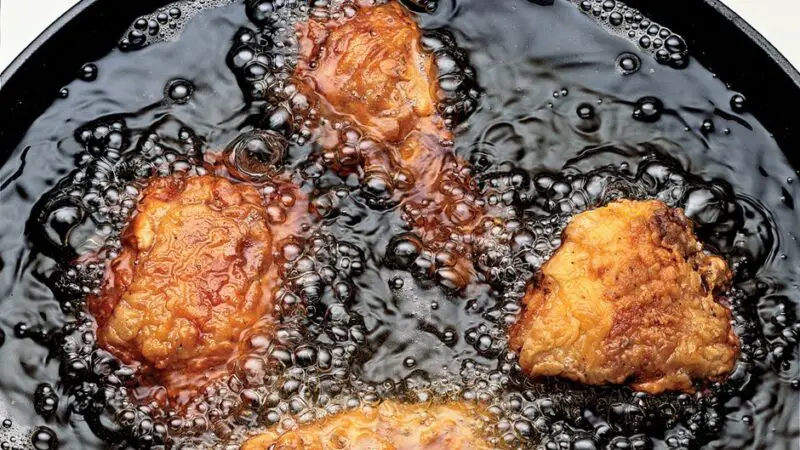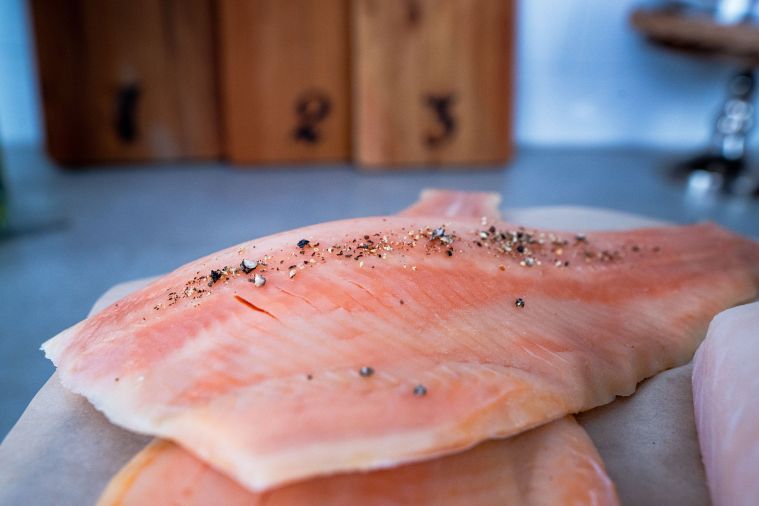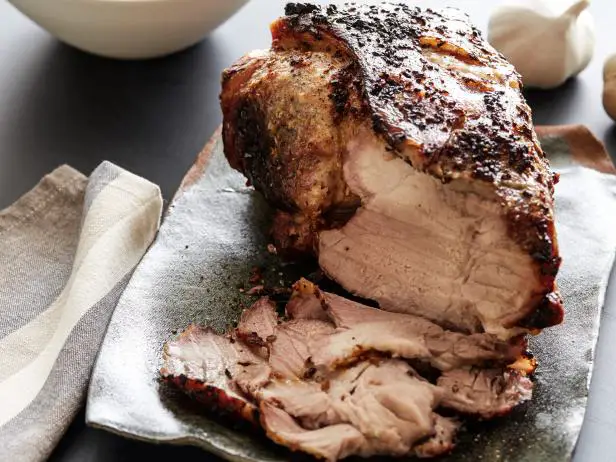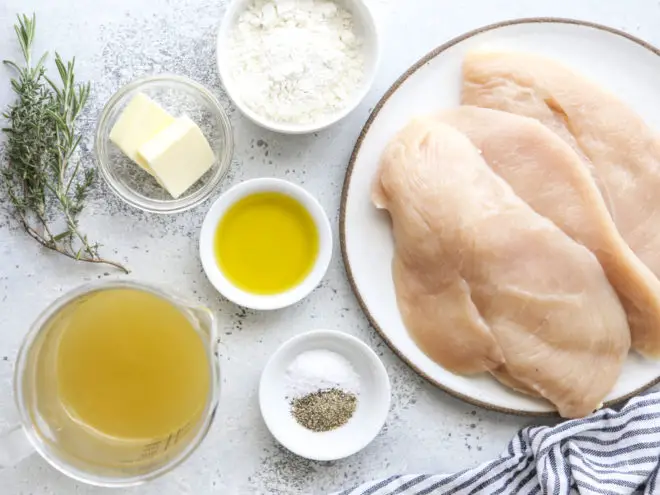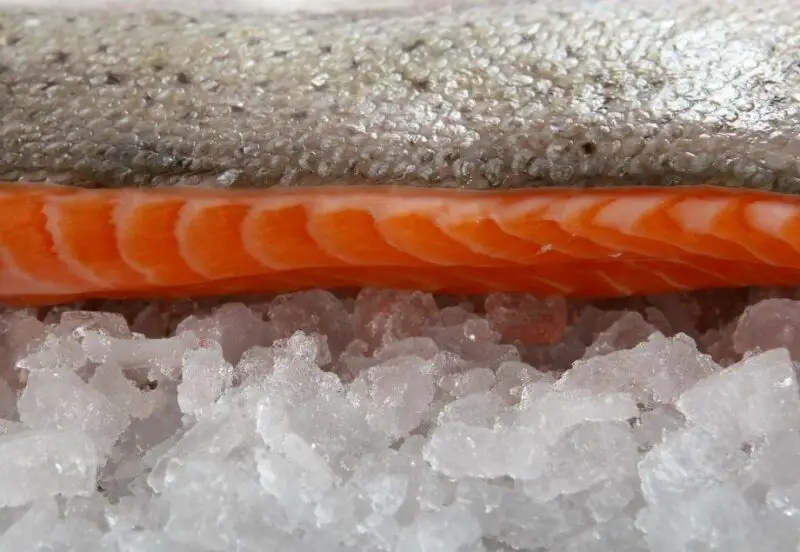Cooking chicken can be a daunting task, especially if you’re not sure which fat to use in the cooking process. The type of cooking fat you choose can greatly affect the flavor and texture of your chicken dish, so it’s important to choose the right one.
The two most common types of fats used when cooking chicken are oil and butter. In this article, we’ll discuss the different types of fats available for cooking chicken, their properties, advantages, disadvantages, and how to choose the right fat for your recipe.
Understanding the Different Types of Cooking Fats
Before choosing a cooking fat for your chicken dish, it’s important to understand the characteristics of each type. Below is an overview of some popular cooking fats.
Butter
Butter is a common choice when cooking chicken due to its rich flavor profile. Butter is made by churning milk or cream until it separates into solid butter and liquid buttermilk. It has a relatively low smoke point (the temperature at which it starts to burn), making it better suited for lower-temperature cooking methods like sautéing or pan-frying.
One advantage of using butter when cooking chicken is that it adds a distinct flavor that can enhance the taste of the dish. However, butter also contains high amounts of saturated fat, which may not be ideal for those watching their cholesterol levels.
Vegetable Oil
Vegetable oils are commonly derived from plant sources such as soybean, corn, sunflower seeds or flaxseeds. They have a high smoke point (the temperature at which they start to burn), making them suitable for high-temperature cooking methods like frying or baking.
There are many different types of vegetable oils available including canola oil and olive oil. Canola oil is low in saturated fats and rich in healthy monounsaturated fats that provide omega-3 fatty acids and other health benefits. Olive oil provides similar nutritional benefits but adds a distinct flavor to dishes due to its olive taste profile.
Advantages of cooking chicken with vegetable oil include that it is a healthier option over butter since it contains less saturated fats. On the other hand, some types of vegetable oil may not provide additional flavor elements that some people are looking for in their dish.
Olive Oil
Olive oil is a popular cooking fat, particularly in Mediterranean cuisine. It is derived from pressing olives and has numerous health benefits such as being high in healthy monounsaturated fats that can lower cholesterol.
Olive oil comes in various grades including virgin olive oil, extra virgin olive oil as well as light or refined olive oils with varying differing levels of oleic acids and nutritional value.
When cooking chicken with olive oil, one advantage is the potential health benefits associated with using this type of fat. Olive oil can add complexity to most dishes due to its flavor profile but needs to be used consciously when like extra-virgin, it’s suitability in different heat situations also matter..
Coconut Oil
Coconut oil is increasing in popularity for use during meal preparation due to its perceived healthy attributes. It has high levels of medium-chain triglycerides (MCTs) which can lead an increase in energy while making the digestive system feel full for longer durations than other types of saucepan oils.
When cooking chicken by braising coconut milk or cream provides an added tropical twist. However, One difficulty when using coconut oil revolves around the fact that it doesn’t possess much additional flavor beyond its slight coconut taste profile making blending important when planning on using it within flavorsome recipes.
Choosing the Right Fat for Your Chicken dish
There are several factors you should consider before choosing the right fat for your chicken dish:
Texture Profile
The textural element resulting from using one fat over another can play a large role in determining which to use within any chicken recipe formulation A crisply cooked piece of chicken might warrant a fat with a higher smoking point, such as avocado oil, whereas, using butter may result in a succulent chicken bone-in cut when prepared correctly.
Flavor & Overall Taste Profile
In instances where flavor plays an essential role within your dish choosing a fat rich in flavor is important. Butter can provide additional richness to the sauce which forms after cooking the seared chicken whilst certain flavors of extra virgin olive oil or sesame oils lift the dish’s aromas to make it more balanced.
Nutritional Factors
Finally, you should consider the nutritional value of the cooking fat and how it fits into your dietary requirements. For instance, if you’re following a low-fat diet or have high cholesterol levels, you may want to avoid fats such as butter with more saturated fat content. On the other hand, opting for MCT rich coconut oil over alternative options might be appealing based on personal preferences and dietary habituation.
Is there a ‘better’ choice?
The debate surrounding whether one type of fat is better than another remains divisive as each oil has its own use case scenario.
Those looking for an added flavor profile option tend to opt for butter when sautéing chicken due to the addition potential combinations that can be attained through adding aromatics to compliment in cream-based dishes; however opting for vegetable oil when pan-frying meats or shallow frying breast cuts may suit those with increased concern over their cholesterol level.
Olive oils rich in monounsaturated fats are healthy heart choices found throughout comprehensive pantry selection lists catering towards health-minded kitchen folk around different regions of the world.
Conclusion
Deciding whether to cook chicken using oil or butter ultimately comes down to personal preference and depends on several factors including texture profile, flavor profile overall taste desires as well as nutritional values.
By understanding the characteristics of different types of cooking fats, you’ll have a better idea of what works best in which situation and choosing between them should become second nature in most instances.
Whatever oil or butter you decide on using for your chicken dish, it’s helpful to keep these factors in mind and always experiment to find what works best for you. At the end of the day, cooking is all about creating dishes you enjoy!
Q&A
- Can I cook chicken in oil and butter combination for added flavor? Yes, you can combine oil and butter to cook chicken for a richer flavor. However, keep in mind that it might slightly alter the taste and texture of the dish.
- Which one is healthier – cooking chicken in oil or butter? Neither is significantly healthy, but using oils like coconut or olive may be better options than using traditional butter due to their higher unsaturated fat content.
- Is there a significant difference between cooking chicken with oil or butter? Yes, there is a difference! Butter tends to burn faster than oil, so if you’re cooking on high heat, it’s better to stick with oils for even cooking.
- Can I use any type of oil to cook chicken? Yes, but different types of oils have different smoke points. For example, peanut oil has a relatively high smoking point which makes it suitable for high-temperature cooking methods like frying, whereas extra-virgin olive oil has a low smoke point making it best used at lower heats like sautéing or roasting.
